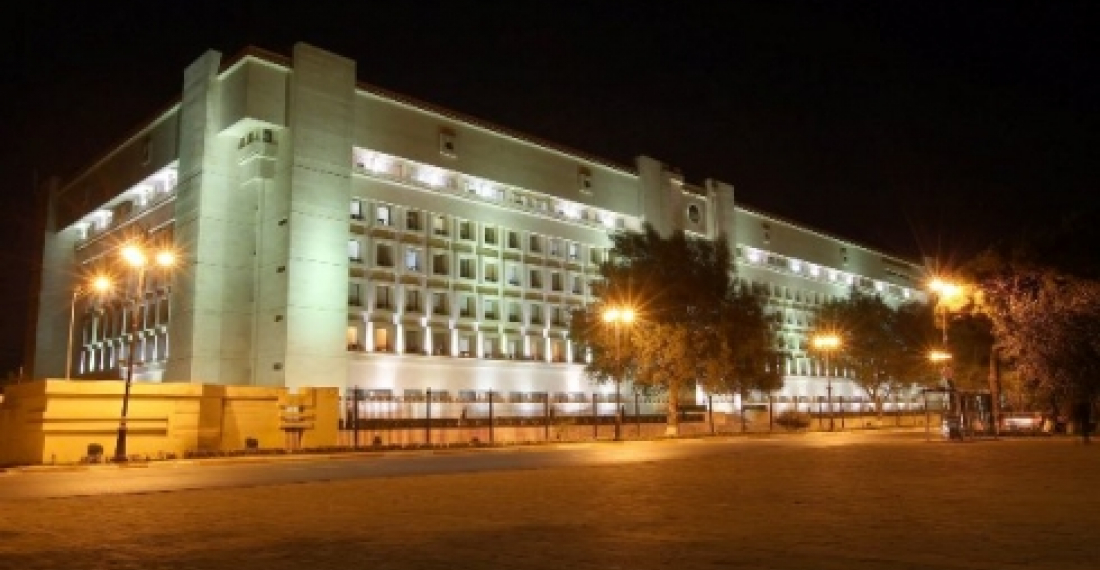The Minister of National Security of Azerbaijan, Eldar Mahmudov, was dismissed on Saturday morning (17 October) following a hastily called meeting of the country's National Security Council chaired by President Ilham Aliev, who had just returned from a CIS summit in Kazakhstan a few hours earlier. Mahmudov, who had been in office since July 2004 is now reported to be under house arrest.
There has not been any official statement from Baku regarding the reasons for the dismissal, and social media has been full of speculations as to what brought about the downfall of one of Azerbaijan's strongest Ministers. However several websites closely connected to the Government are suggesting that Mahmudov was responsible for an intricate web of extorsion of millions of dollars from medium sized Azerbaijani enterprises who were forced to pay after their owners were arrested by National Security Ministry staff, and often tortured. Some other souces however are suggesting that this is only half of the story, and that whilst the extortion allegations were true, these had been known to the government for a while, and that Mahmudov was in fact dismissed because he had become too friendly with the security services of certain foreign countries.
Whatever the reason the fall from grace of Minister Mahmudov has already sent shock waves through the Azerbaijani political elite. Mahmudov was one of the first Ministers to be appointed by president Ilham Aliev, when he took over power from his father in 2003. At the time of his appointment Mahmudov was considered an outsider, and it was reported that he was appointed on the basis of his personal loyalty to Ilham Aliev, and that the two had known each other from their school days. Mahmudov replaced Namig Abbasov who was sent into political exile as Ambassador to Turkmenistan. It was at the time rumoured in Baku that Abbasov was the only person in the Azerbaijani leadership who raised objections to Ilham Aliev's accession to the presidency, citing the fact that he was too young and inexperienced to become President.
The fall of Mahmudov is therefore seen as a personal setback for Ilham Aliev.
Azerbaijani is currently only days before Parliamentary elections, scheduled for 1 November. Most opposition parties have pulled out of the vote, or boycotted it outright. Credible international monitoring organisations such as ODIHR will not be monitoring the elections, saying they could not work within restrictions suggested to them by the Azerbaijani government. There is no news yet on who would replace Mahmudov as National Security Minister, but it is quite possible the Azerbaijani leadership may want to see the elections out of the way before proceeding with one of the most sensitive appointments in its ranks.
source: commonspace.eu
image: The building of the Azerbaijani Ministry of National Security in Baku (archive picture).







